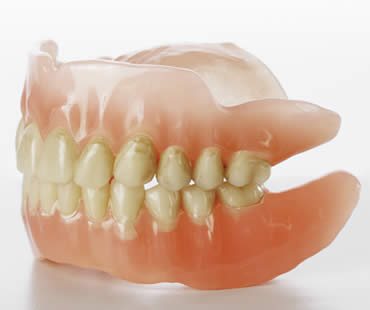
In the past, replacing lost teeth meant getting dentures or bridges. Even though these offered the best way at the time to restore your mouth’s appearance and function, technology has improved through the development of dental implants. The main drawbacks of bridges and dentures is that they do not feel or look just like real teeth, and it is difficult to chew tough foods. The advantage of implants is that they look and perform so well that you can’t even tell they are not your natural teeth.
Made from titanium, dental implants are screws that are surgically placed directly into your jawbone. They are light and malleable, but durable and strong. The titanium screws are implanted into your jawbone and given time to heal. Once healing is complete, one or multiple crowns are placed on top of the implant to recreate your missing teeth. One implant can hold more than one screw, so it is possible to attach as many crowns as needed to replace your missing teeth.
Dental implants look so much like real teeth that others won’t even be able to tell that you have any artificial teeth. You might even forget about it yourself, as they feel real as well. Since the implants are securely placed in your jaw, they are as strong as real teeth and you are able to chew and bite anything that you would normally eat. Another great thing about implants is that they don’t impact any of your adjacent healthy teeth. While bridges and dentures can sometimes damage neighboring teeth because those teeth are necessary for support, implants avoid this problem. You are left with a fully restored and comfortable smile.
If you need a dentist in Fernandina Beach contact us today

Teaching your kids good dental habits and making sure they get dental care are some of the most important things you can do for them. Guidelines for helping your child improve their oral health depend upon their ages. Here are some oral health tips for various stages of childhood.
Infants (up to 2 years):
It’s never too early to begin oral care! Clean your baby’s gums with a damp cloth after feedings to remove bacteria. Once the first tooth erupts, use a soft toothbrush for babies to gently brush the teeth and gums. Use a pea-sized dab of toothpaste and brush at least twice a day. Around the first birthday, begin taking your child to the dentist for regular checkups.
Preschoolers (2-4 years):
This age group has the highest incidence of tooth decay, because most preschoolers love sugary foods but may not love brushing their teeth. Brush your child’s teeth yourself until they are old enough to do it well, but continue supervising the process to make sure all areas are clean. Consider flavored or character fluoride toothpastes if it encourages your child to brush. Also, limit the amount of sugary foods and drinks your child consumes.
Young elementary (5-7 years):
As more and more teeth grow in, your child needs to brush carefully with fluoride toothpaste. Make sure all areas of your child’s mouth are being reached, and help your child use dental floss to clean between teeth and gums. Continue helping your child make healthy diet choices.
Older kids (over 8 years):
Most children should be able to brush on their own by age 8, but performing spot checks is a good idea to make sure they are doing a good job. Teach your child to brush after meals, especially when eating sugary or sticky foods, and emphasize the importance of flossing every day. Continue taking your child for regular dental checkups every six months, which will help create a life-long habit of good oral care.
Our dental office is located in Fernandina Beach
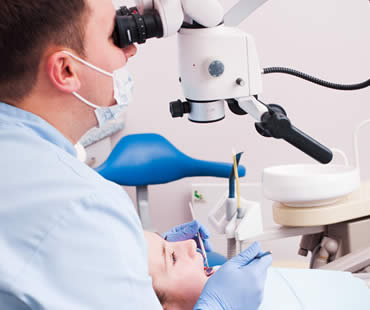
Your family, general, or pediatric dentist or orthodontist may refer you to an oral and maxillofacial surgeon for some dental treatments that require oral surgery. An oral surgeon is a specialist who has graduated from an accredited dental school and also completed additional education and residency related to surgical procedures needed to treat various oral diseases and conditions. An oral surgeon is trained in treating the following conditions:
- Removal of diseased or impacted teeth
- Placement of dental implants
- Treatment of facial trauma involving gums, jaws, nasal cavities, cheekbones, eye sockets, and forehead
- Evaluation of pathologic conditions such as cysts and tumors of the mouth and face or acute infections of the oral cavity, salivary glands, neck, and jaws
- Treatment of facial pain including those caused by temporomandibular (TMJ) problems
- Cosmetic or reconstructive surgery to correct jaw, facial bone, and facial soft tissue problems
- Corrective jaw surgery
- Cleft lip and cleft palate repair
- Surgical treatment for sleep apnea
There are many different techniques that oral surgeons use to accomplish your treatment goals. The choice of techniques may vary between surgeons and should be discussed between you and your surgeon prior to the procedure.
Many oral surgery procedures can be completed in an outpatient setting. Often you are only in the office for a few hours and can return to your regular routine in a matter of days. A good oral surgeon will be able to perform these procedures with little chance of complications, and will be able to provide you with the information you need to understand the recovery process. Your oral surgeon will often collaborate with other specialists, such as an orthodontist or cosmetic dentist, to achieve your ultimate treatment goals.
If you live in the Fernandina Beach area contact us today
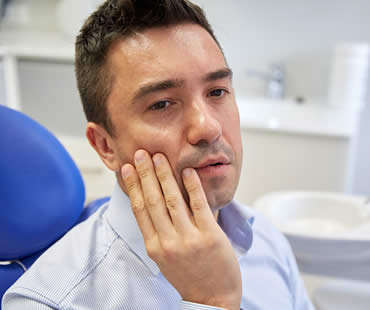
If you are about to undergo root canal treatment to save a compromised tooth, your oral surgeon or dentist will likely provide you with a list of aftercare instructions. It is vitally important that you follow these recommendations to avoid complications and ensure the success of your endodontic treatment.
There are a few tips you can follow to speed up your recovery time, promote healing, and prevent serious dental problems and infections following root canal treatment:
- Do not chew on the treated side of your mouth until all of the numbness from the anesthetic has worn off completely.
- To manage swelling, apply an ice pack or bag of frozen peas on the treated area for thirty minutes. Repeat once an hour for about fifteen minutes each time until swelling subsides.
- For several nights after treatment, keep your head elevated while sleeping.
- Gently rinse your mouth with warm salt water regularly for the first few days after root canal treatment.
- Refrain from smoking for a minimum of 24 hours and try to curb tobacco usage as much as possible during the healing period.
- Avoid strenuous physical activity or exercise for 48 hours after your root canal procedure.
Contact your dentist immediately if you experience any excessive swelling or pain, the appearance of a rash or hives, or a return of original symptoms. By listening to the recommendations of your dentist, and following these extra tips, you can assure yourself the best chance of a rapid and complication-free recovery from root canal treatment.
Our dental office is located in Fernandina Beach
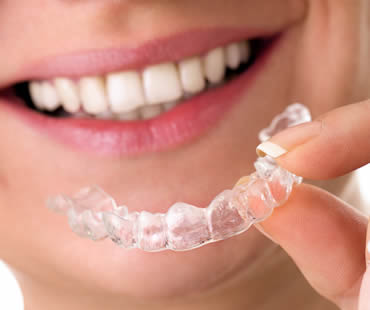
But am I too old to deal with the hassle of teeth straightening? You may be surprised to learn how little your routine will change with Invisalign. From your morning schedule, to meals, work-outs, and bedtime you can go about your day in much the same way as before you chose to beautify your smile with this state of the art treatment.
Always rushed in the morning? Simply pop out the Invisalign aligners, brush and floss normally, and pop them right back in place. To clean the aligners, you can either use the cleaning kit provided or brush and rinse with warm water. The process is easy and quick, allowing you to get out the door to your meeting or carpool in a flash.
Big lunch with clients or a special luncheon? No problem. With Invisalign, you remove the aligners during meals. No worries about spinach stuck in metal brackets and wires, or restrictions on the types of food you can eat. Enjoy your lunch with confidence.
But I love to play basketball at lunch, and soccer with my kids? If contact sports are a big part of your life, Invisalign won’t get in your way. You can leave the aligners in without concern that you might cut your mouth, or remove them if you normally wear a mouth guard when playing. Score another point for Invisalign!
I’m so tired by bedtime that I just want to fall into bed, won’t they take forever to clean? With Invisalign, no need to worry about the tedious cleaning and flossing between brackets and wires as with traditional braces. Since the aligners are removed for oral hygiene tasks, you can simply brush and floss your teeth normally, and then brush and rinse your aligners. It’s so quick that your pillow won’t have time to miss you.
As you can see, with Invisalign, your daily routine will experience minimal changes, but your smile will achieve maximum results!
Schedule your appointment at our Fernandina Beach dental office
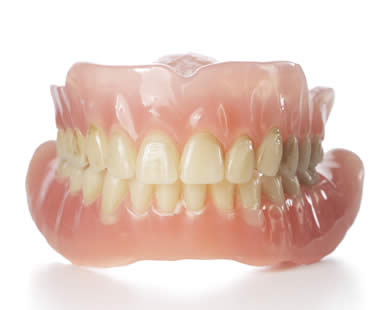
Have you lost all or most of your teeth due to damage, disease or decay and don’t find traditional removable dentures an attractive option? Implant-supported hybrid dentures are an alternative to traditional dentures that provide a secure and stable prosthetic replacement for missing teeth by combining the benefits of a fixed replacement with the advantages of a removable denture. Hybrid dentures are an especially viable option for patients who have lost a large amount of jawbone due to missing teeth. Some of the benefits of hybrid dentures include:
- Hybrid dentures save your natural roots and preserves bone while reducing bone resorption and deterioration.
- Hybrid dentures help to control facial contour changes caused by missing teeth.
- Hybrid dentures function more naturally, allowing you to chew food better and speak more clearly.
- With hybrid dentures, there is no need for messy denture creams and adhesives, eliminating much of the embarrassment associated with loose dentures.
- Hybrid dentures eliminate the slippage, clacking and loss of taste associated with traditional dentures.
If you would like fixed teeth to replace teeth that you have lost but are not ready or a candidate for multiple individual implants for each missing tooth, hybrid dentures could be your solution. Hybrid dentures require only a few dental implants to secure the new teeth in place, allowing for quicker recovery time and increased comfort.
If you are seeking an alternative to traditional dentures to replace your missing teeth, talk with your dental professional to determine if you are a good candidate for hybrid dentures. With hybrid dentures, you can successfully restore the look, feel, and function of your natural teeth.
If you need a dentist in Fernandina Beach contact us today







